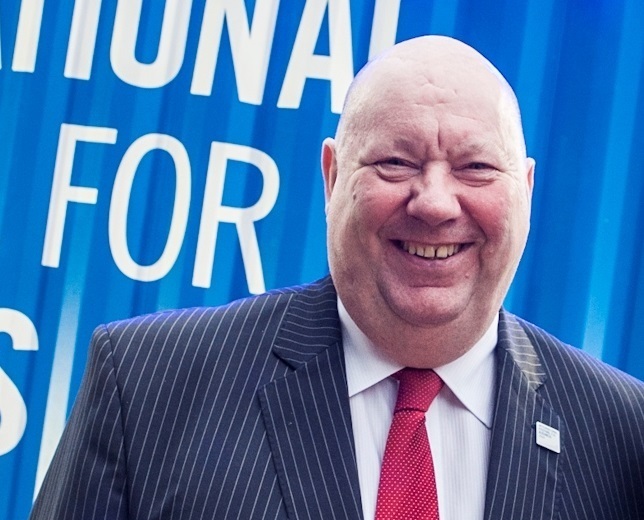Devolution, mayors, and the line between politics and economics
Paul Swinney, director of policy and research at Centre for Cities, told Place North West he is keen to see how through a time of increasing devolution and relative political stability, mayoralties can become a major positive for the North.
However, he warns that despite political gestures, northern mayors must recognise that a North without competition is “just not how the world works”.
Devolution has become somewhat of a political success story over the past few years, with several mayors gaining greater autonomy and a high profile public image.
With the tides of political change, it could be that the UK becomes a patchwork of mayoralties which could eventually cause fracturing in the system.
Speaking to Place at UKREiiF in Leeds last week, Swinney said: “Clearly then there are more colours now in the mayoralties across the UK than was the case a couple of weeks ago.
“It will be interesting to see whether those new mayors, particularly ones from different parties, integrate into that or not.”
On a local level, four-year mayoral terms bring further stability, but for emerging mayoralties, the challenge will be how to cement the political role as an institution, in a way that has been achieved by Metro Mayors such as Andy Burnham and Steve Rotheram.
“[The new mayors] will be starting from scratch. With the more established mayors, that institution-building has been happening for years, which enables them to think less about that and more about policy.
“It will be fascinating to see how, at the local level, the mayoral model continues to evolve, in some areas evolving from nothing, and in other areas where there’s a continual evolution from the years that they’ve been in place.”
Considering the national picture, Swinney sees potential in stability, pointing to the release of the industrial strategy scheduled for next month, and a number of other plans expected to be published in the coming months.
“Hopefully, there will be a bit of longevity now – a big challenge for the industrial strategy in 2018 was that Theresa May revealed it and then soon was no longer Prime Minister, and it got ditched for something else.
“There’s the potential at the national level for that longevity of policy in a way we haven’t had for a while, so it will be interesting to see what impact it has.”
Swinney believes that while mayors are acting as figureheads, courting international stakeholders and investors, to their electorate, they are also creating a sense of visibility.
“We did some work on this last year where we called people in the mayoralties that were having elections in May 2024, and asked, ‘Can you name your local authority leader, your MP, and your metro mayor?’ In almost every area that we called, the Metro Mayor was the one that was most recognisable.
“We have created an institution, which is good. It seems fairly hard to conceive that a couple of days into a new government, Labour would have called local authority leaders into a room – but they did call the mayors in.
“That again shows how these institutions or political positions that are being created are able to speak directly to the national government.
“What we have less sight on is how they’re able to speak to international investors because it happens understandably behind closed doors, but we know mayors are going on international trade missions, so they are fulfilling that role too.”
Touching on the Great North concept launched last week, Swinney believes it is a clever political move to demonstrate ambition, but may be more of a challenge economically.
“The great old concept, that we [the North] are all friends and get on nicely, and we won’t compete with each other – the reality is that’s not how the world works.”
Swinney acknowledged that different northern regions play different parts in the Northern economy, which he praised, but warned that similar urban areas will be confronted with regional competition.
“Larger urban areas should be offering a range of benefits and the appeal to knowledge-based economic activity across the whole spectrum from FinTech through to smartphone app development, to data as a service, and all these different types of things.
“They should have a lot of skilled workers, commercial space that’s appropriate, transport to link those workers to that commercial space and housing.
“The issue then, for a place like Manchester, is that it means you are in direct competition.
“You’re not in direct competition with Cumbria because you’ve got a number of things that show you can compete, but you are in direct competition with Liverpool, you are in direct competition with Leeds.”
He continued: “The public sector, as much as it might want to claim, can’t direct this.
“If there was an investment opportunity between Leeds and Manchester, understandably, Greater Manchester’s going to want to claim that, and understandably, West Yorkshire’s going to want to claim it.”
He adds that no one would want to back down and hopes that behind closed doors, there’s a clear consensus that the North isn’t one economy.
“It’s a series of economies, and the big challenge for the North is that Manchester, Leeds, Liverpool, and Newcastle don’t pull in anywhere as much [investment] as they should do.”
On the potential fragmentation of devolution in the years to come, Swinney believes that although politics will never pull its punches, the idea of the mayoral position is far more local and place-focused than the roles of other politicians.
“It is much more about delivering for their place, and it will be interesting to see what the Reform mayors decide is their version of devolution.
“I would have thought they should align with what the other mayors are trying to do, which is trying to make their area more prosperous, and the ingredients for that are probably fairly similar, whether that’s Hull and East Riding or whether it’s Greater Manchester.”
“Now we will see how they make use of a fantastic opportunity to try and bring greater prosperity to the people who’ve voted them in.”





No hiding place for these Mayors. Disgraceful for example that Manchester’s economic growth dwarfs Liverpool’s. Devolution should not be a tool to find pet schemes, but to focus on key strengths and investments leading to tangible growth.
By Anonymous
TBF Manchesters economic growth dwarfs them all, you can’t just blame Liverpool, it’s far more complex than that.
By Anonymous
The North generally needs a fair slice of the economic pie. What happens when it gets a fair share is up to each authority. I’m just waiting for pie.
By Starvin Marvin
While Burnham is MAYOR of Greater Manchester I see little hope
His political views have and always will have a dampening affect on how Private and Public investment can work together
By Frank
Why is it disgraceful that Manchester’s economic growth dwarfs Liverpool’s? I don’t understand what that means?
By Elephant
Not looking to out necessarily to see what Reform mayors do, but how incumbent Labour mayors deal with their constituent councils when they start to flip to NoC or even Reform majority as the local government election cycle for metropolitan authorities kicks in next year. Rayner is requiring all CA’s to do spatial planning, and we know what a joy PfE was even in a place as politically coherent as GM.
By Rich X
Andy Burnham has not delivered one new metro link line in eight years yet he is held up especially by himself as a greate local champion..Judged on his original campaign promises rough sleeping he is is a complete failure with tent city near town hall.
By Andy Smith